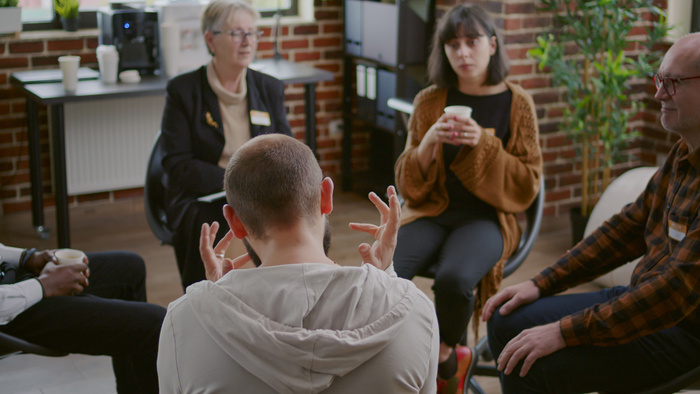How Hypnotherapy Really Works
If you question the validity of hypnosis and hypnotherapy, you’re not alone. This is due to the flood of misinformation in media, and in recent years, on the internet. Despite a lot of falsification, hypnotherapy is a valid practice that can reap many positive results. At Banyan Group Therapy, we offer hypnotherapy as one form of treating patients. Coupled with traditional therapy and medication, it can help people cope with a variety of conditions. We would like to distill false reports you may have heard about hypnotherapy and hypnosis. So, if your aim is to understand what it is and how you can benefit from it, then you’ve come to the right place.
What is Hypnotherapy?
Hypnotherapy is a form of psychotherapy. The patient is guided into a trance state by a trained therapist. There are many definitions for “trance”, but a good way to describe it is a state of semi-consciousness. In this state of deep relaxation, the patient becomes less aware of his or her surroundings. It should be noted that, although you are less aware, you still have complete control over your mind and actions.
During this trance, patients become hyper-focused on a particular memory, thought, or task that a trained therapist essentially guides them to. In some cases, patients are guided to a painful experience that was repressed and forgotten. This is because, in the trance state, the conscious minds can connect with the unconscious mind. Therapists can also use hypnosis to help patients stop a negative action, such as smoking.
Many people wonder if there is a difference between hypnosis and hypnotherapy. There isn’t much of a difference, and it could be said that two go hand in hand. Hypnosis is not a form of therapy, but a tool used in hypnotherapy as a form of treatment. Without hypnosis, there can be no hypnotherapy.
What Does Hypnotherapy Treat?
Many people can benefit from hypnotherapy, as it treats a variety of conditions. It is to be used in conjunction with traditional forms of therapy, and can treat, but is not limited to:
- Phobias
- Mental disorders, such as anxiety and depression
- Learning disorders, such as ADHD and dyslexia
- Substance abuse
- Insomnia
- Sexual dysfunction
In the form of suggestive therapy, it can also be used to stop bad habits, such as smoking or overeating. In the form of analysis, it can get to the root of problems, such as trouble sleeping or the cause of phobias.
Hypnotherapy Myths
The media likes to dramatize hypnotherapy, which gives many people a warped idea of what it’s really about. Let’s separate fact from fiction.
Fiction: You can be hypnotized against your will.
Fact: A trance is a latent potential of your own mind, and the therapist simply guides the process. You cannot be hypnotized if you don’t want to be.
Fiction: The hypnotist has complete control of your mind during hypnosis.
Fact: During hypnotherapy, you are awake and a participating party. You’re more susceptible to suggestions, but you are in control.
Fiction: You may never be able to come out of hypnosis.
Fact: You are conscious and awake, and you can easily get out of a trance, simply by opening your eyes.
Fiction: Hypnosis is like sleeping.
Fact: Not only will you be awake, but you’ll be hyper-aware, so hypnosis is not like sleeping.
Fiction: It’s safer to hypnotize yourself.
Fact: Hypnotherapy should never be done by someone who is not a trained professional. It is far less effective and can sometimes lead to adverse consequences.
Fiction: It’s impossible for me to be hypnotized.
Fact: If you have an open mind about hypnosis, you can be hypnotized. If you are less receptive to the idea, then you may not benefit from this type of treatment. However, if you call the Lake Worth therapists in our office, this shows that you are open to the idea and you’ll have a better chance of benefitting.
Contact Banyan Group Counseling
If you are interested or would like more information, contact us today. We have five offices in Palm Beach County, Florida. Along with hypnotherapy, we have individual therapy for children and adults, family therapy, group therapy, and marital therapy.




